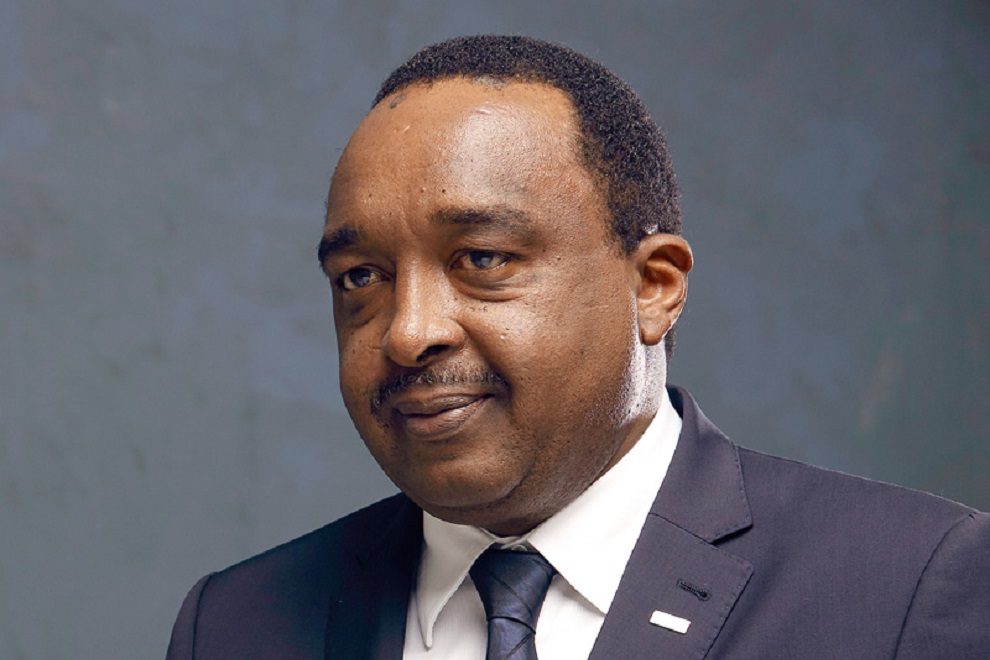Interview with Bocar A. BA, CEO and Board Member of SAMENA Council
Teletimes: Please tell us about SAMENA Council’s latest activities and how participation of various industry players in your mission has increased, lately, since yours transformation from being a stakeholder networking platform to being a trusted sector development partner.
Bocar A. BA: As a sector-development partner to regional Regulators, while being an advocacy voice for Telecom Operators, SAMENA Council’s activities are always aimed at representing Telecom Operators’ needs and sustainability requirements, while delivering on the trust and expectations from both private and public-sector stakeholders. These stakeholders include SAMENA Council’s own member companies as well as government bodies and international ICT development organizations.
Among our key recent activities, preparatory work for the development of 5G has been on the main front: SAMENA Council has been instrumental in facilitating constructive communication and collaboration in some fundamental issues with respect to the timely proliferation of 5G in the region. Since before its flagship Leaders’ Summit last year, the Council had been evaluating some high-level cost modelling for 5G development. The results of this work have shown that total deployment costs of 5G may be extremely risky, but could be reduced with forward-thinking spectrum auctioning or allocation approaches. SAMENA Council has also been emphasizing on spectrum harmonization and has assured regulatory authorities in the region that, with Operators, it will fully support national ICT visions
In terms of participation of renowned global private-sector players and engagement with regulatory authorities, SAMENA Council’s industry-development efforts have indeed received attention from both private and public domains.
The world’s largest integrated telecommunications company, AT&T, recently joined SAMENA Council to advance digital development efforts of Operators; British Telecom had joined earlier to focus on regional digital development work with SAMENA Council. Other players, including those specializing in IoT, Blockchain, and satellite services, are now also a part of SAMENA Council’s membership. On the regulatory fronts, SAMENA Council has been collaborating extensively with the UAE’s Telecom Regulatory Authority and Saudi Arabia’s Communications & Information Technology Commission on Internet’s developmental considerations, digital economy, and future policy discussion platforms; and with Bahrain’s TRA, an MoU to establish a joint group to define and address common issues of interest has been put into effect.
TT: How does SAMENA Council view 5G and what are the key areas that require attention to make best use of 5G?
BA: 5G is a major evolutionary step in our mobile network technologies. It reflects on the human civilization’s efforts to innovate, with a promise to greatly increase end-to-end network and terminal performance, and to provide an unprecedented digital experience to end-users; both machines and man. 5G also promises revolutionary means to create and make use of artificial intelligence, thereby allowing for the creation of advanced digital services that will cater to almost all areas of our lives. But it is also important to say that 5G is not about just technology; it is about ubiquitous connectivity and access to services at both low and high data-rates. New services based on AI, Blockchain, IoT, IIoT, Edge Computing, to name a few digital techniques and approaches, will all be made possible with the flexible and intelligent platforms provided by 5G.
Regarding the impediments for 5G, fortunately, much progress has already been made to make 5G possible. SAMENA Council anticipates seeing the proliferation of 5G realized in the region very soon. However, the two all-encompassing major areas, which I consider to be highly urgent and thus require special attention, are: Operators’ need for improved spectrum allocation policies, and general regulator-level support for understanding future requirements of and multiple dimensions in building the region’s digital economy through the proliferation of 5G.
TT: Are there any special efforts by SAMENA Council that have brought benefit to the Industry over the recent years?
BA: Teletimes has raised a very important question.
SAMENA Council’s core benefit lies in its value-proposition: As an international non-profit organization (INPO), registered in Brussels – Belgium, with main Operations branch in Dubai – UAE, SAMENA Council has created a unique regional position as an Operator advocacy organization that promotes and enables institution-level engagements with leading private and public-sector entities. To a considerable extent, our efforts to bring direct benefit to SAMENA Council’s most concerned stakeholders have been centered with pin-point accuracy on filling external gaps between ITU and Operators, Operators and Regulators, Operators and Alternative Market Players, and on fostering consistency and consensus among member Operators.
As a result of these efforts, which some of the industry decision-makers see in the form of SAMENA Council’s industry gatherings and closed-door stakeholder meetings, some of SAMENA Council’s cost-saving advocacy efforts for Operators have lately been in the area of spectrum planning and 5G spectrum auctions. SAMENA Council has successfully highlighted the issue of extended payback periods in 5G investments and drawn attention of regional regulators, especially in the Kingdom of Saudi Arabia and the Kingdom of Bahrain, to spectrum allocation methodologies that may best serve the region. The Council values in having been privileged to have received official acknowledgement of these efforts, and to have contributed to spectrum allocation strategies that will save Operators large Capex and Opex while enabling the mitigation of spectrum interference issues across countries. On the latter front, SAMENA Council has further work planned to be done with Regulators.
TT: Teletimes is seeing multiple viewpoints on what the upcoming World Radiocommunication Conference (WRC-19) may or may not achieve for Telecom Operators. What is SAMENA Council’s understanding of this subject, and what is your primary goal for WRC-19?
BA: The telecommunications industry runs on spectrum, and it is the WRC where Radio Regulations, which govern the rules of use of spectrum all around the world, are reviewed and revised as necessary. The process is highly complex and administratively highly involved. The agenda of WRC-19 contains over 30 agenda items and issues covering many frequency bands and radio services and includes “standing” agenda items which address general regulatory and procedural matters.
Because the decisions arrived at during WRC-19 will set the framework for how spectrum is used throughout the world for the next few years and beyond, SAMENA Council, as an ITU-D Sector Member, is exercising the mandate given to it by Operators to unify their voice and to precisely represent their needs and preferences.
Fundamentally, the agenda of the WRC-19 is least representative of the current actual spectrum needs and requirements of the Operators. Thus SAMENA Council is aiming to channelize its focus away from various spectrum band proposals, including those for above 20 GHz spectrum which is not needed for many more years, and to concentrate all efforts instead to enable the harmonization of band 78 (or C band, 3.6 to 3.8 GHz, particularly). This, SAMENA Council, believes is all that is of most relevance to Operators and will be an important milestone in making 5G possible with more scale, considering that signal interference in this band across borders and across the Satellite and Operator community will be a major issue to tackle and will impact economies of scale in 5G proliferation. SAMENA Council believes that the harmonization of C band, particularly of its upper portion (3.6 to 3.8 GHz) requires Operator – Regulator cooperation, and is a sensitive area in which it can effectively play a contributing role.
TT: How can industry stakeholders and decision-makers prepare for the 5G future?
BA: All industry decision-makers need first to keep in view the speed at which mobility and connectedness are materializing, and how they are impacting data consumption and defining new business horizons in telecom-media convergence. Data volumes, supported by new wireless systems that include advanced terrestrial as well as space-based broadband access systems, will maintain an upward trajectory as far as we know and can imagine.
Secondly, the decision-makers need to work much more closely with each other. Gone are the times when each business could thrive in by operating in a silo mode. Now, in the age of digital customer experience management, collaboration is inevitable for meeting success. Moreover, as we have technologically evolved, so has been our evolution in terms of possibilities we can create. This is a century of cities – of smart cities, that is. In itself, this is a tremendous motivation and inspiration to have, and it shows how preparing for the future will require future planning that is driven by a full understanding of the new digital life cycle in the digital ecosystem.
TT: How is SAMENA Council calling for action on digital transformation within the region and on paving the path for 5G?
BA: SAMENA Council has always called for openness and collaboration among stakeholders. In many incidences, SAMENA Council’s intervention and efforts to fill communication gaps have been instrumental in bringing stakeholders together on unified platforms.
In the case of 5G, SAMENA Council started its work three years ago, when our focus on spectrum, digital transformation, and digitization enablement grew gradually, governed by the priorities defined by SAMENA Council’s Board of Directors. By now, it has become a full-fledged digital transformation and Operator enablement program.
The constituents of this program are the thought leadership on the spectrum needs of operators, direct collaboration frameworks with regulators on addressing the Industry’s most pressing issues, contributing new information and academic analyses on industry issues in regulatory workshops, and bringing Regulators and Operators together to conduct thematic intellectual discourse.
Bringing the regional leadership together under one platform is an imperative that SAMENA Council has exercised for well near a decade, and, in the shape of Leaders’ Summit in particular, it has proven to be a successful initiative by the Council.
TT: Please tell us about Leaders’ Summit 2019 and what is most significant about the Summit this year.
BA: SAMENA Council’s Leaders’ Summit 2019 has the official patronage of the Telecom Regulatory Authority of the UAE, with anticipated participation of various heads of regulatory authorities as well as ministers who will attend the Summit this year. We are expecting more representation from South Asia’s developing markets, and foresee have meaningful discussions on the Industry’s new roles and expectations in the age of 4th Industrial Revolution. The anticipated indulging conversations of Leaders’ Summit 2019 will help visualize the impact of 5G in boosting ICT business and innovation in the region.
Hosted for the sixth consecutive year by Huawei Technologies Middle East, co-Sponsored by Sudatel Group and Ericsson Middle East, and with the presence of SAMENA Council’s Operator members and other leading businesses in the industry, the one-day leaders-only congregation, will continue its tradition of bringing change-makers from the private and public domains together, but, this year, in a new organization format, designed to maximize attendance and enrich discussion and open exchange among industry stakeholders. We look forward to covering a wide spectrum of topics, including enabling transition to “Inclusive 5G”; barriers to achieving economies of scale in 5G device capabilities; identification of technology, regulatory, and business challenges in 5G communications; Industry 4.0; and technology use cases in a 5G-enabled digital economy.
Leaders’ Summit 2019, building on information and knowledge base created with industry decision-makers over the past several months, combined with the knowledge exchange that will transpire during the Summit, is expected to directly impact the speed of proliferation of 5G in the region and SAMENA Council hopes that the year 2019 will prove to be truly transformational in our aspirations for creating a fifth-generation technology-powered world.












